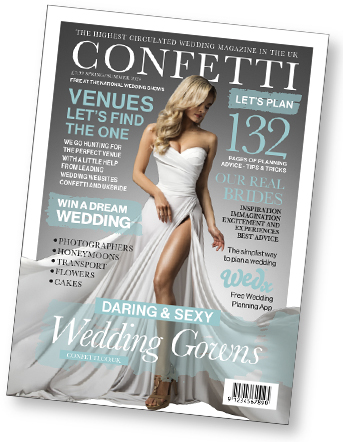It’s been a long time since English Judge, Jurist and politician William Blackstone wrote, “by marriage, the husband and wife are one person in law.” While our legal system has caught up to no longer place women in the same category as cattle, property and the family’s treasured silverware, new brides are embracing the traditional culture of taking on their husband’s surname. This leaves many observers scratching their heads working out why one particular hang-up of English marital ownership has survived well into the era when babies can be made without a man’s assistance. Why do the majority of women still take their husband’s name after marriage?

Image courtesy of JK Photography
It was a 20th century phenomenon that saw women entering the paid workforce, burning bras and retaining their maiden name after marriage. 70’s and 80’s career woman did much to get the topic of marriage name change front and centre in the debate of newlyweds. In fact, if you didn’t keep your maiden name after marriage you were simply weren’t supporting the women’s movement. While women still don’t receive equal pay as their male counterparts, the modern lass generally considers herself on equal footing with her male colleagues. This should give her the option to keep or ditch her maiden name without judgement, but it seems all and sundry feel compelled to pitch in their tuppence of opinion.
When the name change debate rears its head there is often a bevy of opinionists who criticize brides for plunging womankind back into feudal times. Ironically, many who voice their displeasure with marriage name change aren’t married themselves and therefore can’t directly influence marital name change statistics in any case. This is no surprise when we see the spiralling rate of marriages. Who would want to get married when they receive the same rights under common law – you’ll still get half of his house should everything go pear-shaped.
An interesting new opinion of marriage has emerged recently, where marriage is seen as an achievement, particularly by older brides. As fewer people get married, and those that do tend to get married later in life, many brides who make the plunge are more determined than ever to make it work, especially as they reflect on their own childhood which saw the rate of divorce skyrocket. To make a commitment to having their own family is not to be taken lightly, so taking the husband’s name is an extension of that commitment (and, concurrently, a reflection of that achievement).
A more common belief held by younger Gen Y brides is that there is really no point hanging onto a maiden name. Regardless if they keep their maiden name, or whack the hubby’s name on the end of theirs, her maiden name is on the slow train to nowhere. Her kids won’t have it and she’ll be the only one in the family to have a different name. The thought of constantly having to explain to fellow dinner party guests on her motivation to keep her maiden name is simply not appealing, and there is simply no feminist stance to be made. After all, she’s had the same opportunities in life as her brother, so why make a silent protest about women’s rights when she already feels an equal?
A 2009 study found that what influences women in determining their surname after marriage are not popular opinions about religious ideas or marital roles. It all comes down to personal choice. Some brides have just grown up always knowing they would just take their husband’s name, some don’t want to make a statement, some do, and then there are those that would damage their business or career if they were to change names. While you might have strong opinions about marriage name change and what you want to do after getting married, a new bride probably doesn’t want your opinion – she already knows what she wants to do.
Are you changing names after marriage?
While marriage name change has become increasingly popular, the biggest groan among new brides is the bureaucracy, with many putting off the change because they just don’t know where to start. Granted, changing names usually takes the best part of the day and you need to get ready to wait on hold and write a stack of letters. But there is an easier way!
The NameSwitch name change service can save you hours of name change administration. Simply nominate who you need to notify of your new name and NameSwitch will take care of almost all your paperwork. Their packages are created in your name and contain all the information needed to change names. If your nominated company needs you to send a form or letter they’ll provide it. In most cases you simply sign your old and new names and send.
See more advice on Confetti’s wedding planning pages!

